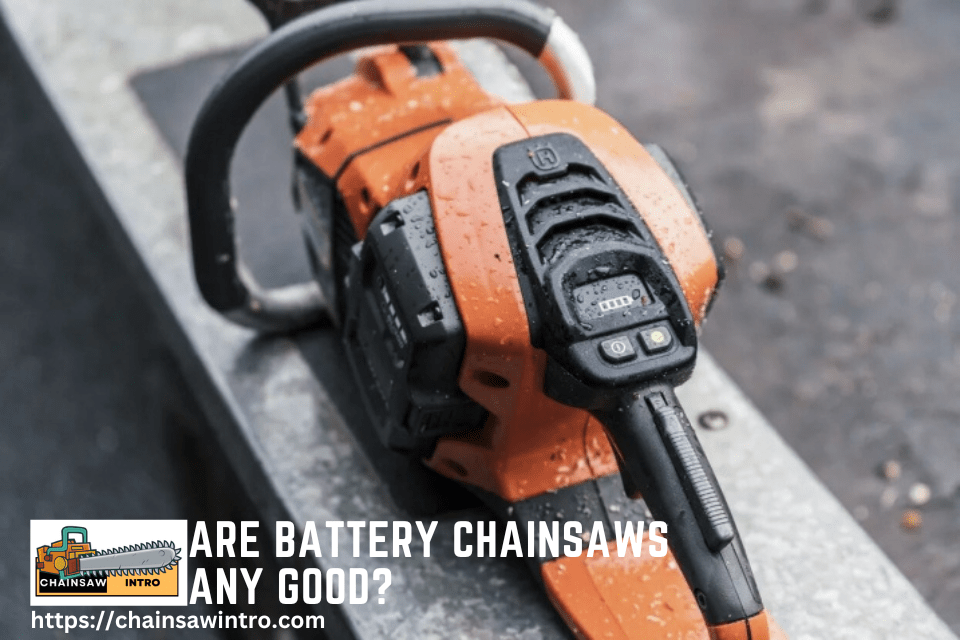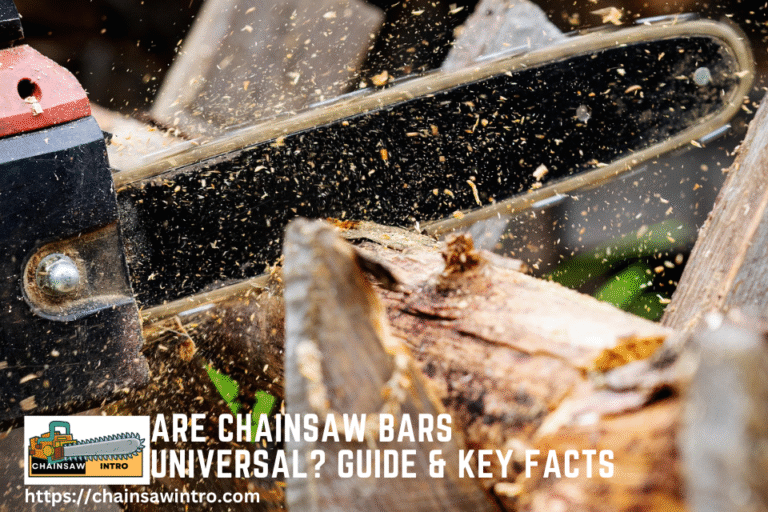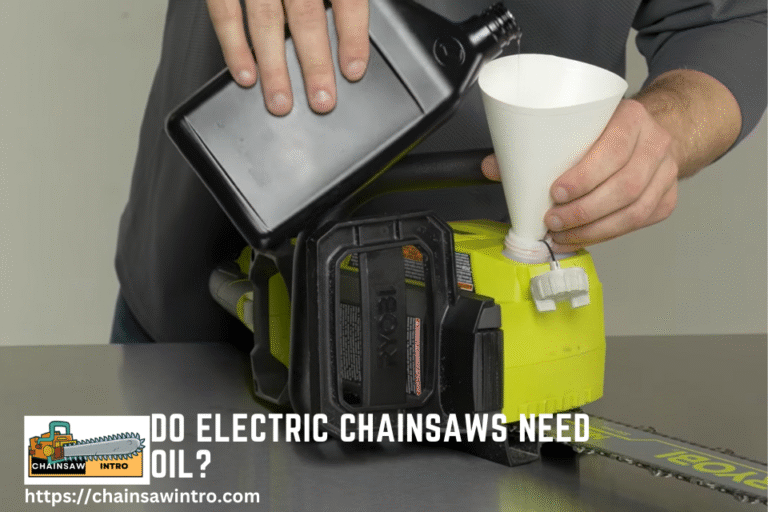Chainsaws have long been dominated by powerful gas models, but in recent years, battery-powered chainsaws have quickly gained popularity among homeowners, landscapers, and even some professionals. With advancements in lithium-ion technology and brands like Ego, Makita, and DeWalt leading the charge, many people now ask: Are battery chainsaws any good? The short answer is yes—battery chainsaws are an excellent option for many users, offering convenience, low maintenance, and surprising cutting power. However, like any tool, they come with both strengths and limitations.
In this article, we’ll explore their performance, reliability, and value, diving into key features, pros, cons, and user insights from 2025 reviews. Whether you’re pruning branches, cutting firewood, or tackling storm cleanup, this guide will help you decide if a battery-powered chainsaw is right for you, targeting search terms like “battery chainsaw review 2025” and “are battery chainsaws worth it.”
Why Battery Chainsaws Are Becoming Popular?
Battery chainsaws are becoming increasingly popular because they combine ease of use with eco-friendly performance. Unlike gas chainsaws, which require fuel mixing, regular maintenance, and produce loud noise, battery chainsaws start instantly with the push of a button, run quietly, and are virtually emission-free. This makes them especially appealing for residential areas and casual users who value convenience over raw power.
What Are Battery Chainsaws? Understanding the Basics
Battery chainsaws, also called cordless chainsaws, run on rechargeable lithium-ion batteries, typically ranging from 18V to 80V, delivering power comparable to small gas models. Unlike corded electric saws, they offer mobility without the tether of a power cord, and unlike gas saws, they eliminate the need for fuel mixing and engine maintenance. Models like the Ego CS2005, Makita XCU04, and DeWalt DCCS670 dominate the market, with bar lengths from 12 to 20 inches for tasks ranging from light pruning to heavy-duty cutting. Prices in 2025 range from $150 to $500, depending on brand, battery capacity, and features like brushless motors or tool-free chain tensioning. But do they live up to the hype? Let’s dive into their performance.
Performance: Can Battery Chainsaws Keep Up?
Battery chainsaws have made significant strides in power output, with top models rivaling mid-range gas saws (30-50cc) for homeowner tasks. The Ego CS2005, with its 56V battery and 20-inch bar, delivers a chain speed of 6,800 RPM, cutting through 14-inch logs in seconds, according to 2025 reviews from Popular Mechanics and TechGearLab. Similarly, the Makita XCU04, a 36V dual-battery model, offers impressive torque for felling small trees, earning praise on Reddit’s r/Chainsaw for its smooth operation.
For lighter tasks, models like the DeWalt DCCS670 (60V, 16-inch bar) excel at pruning and firewood cutting, with users on FireAndSaw.com noting its ability to handle 50-60 cuts per charge on a 2Ah battery. However, performance hinges on battery capacity—larger 4Ah or 6Ah batteries extend runtime but add weight, pushing some models to 15 pounds or more. Continuous heavy cutting can drain batteries quickly, requiring spares for all-day work, a limitation compared to gas saws that refuel in seconds. Still, for most residential tasks, battery chainsaws deliver ample power with the bonus of quiet operation (70-80 dB vs. 100+ dB for gas).
Reliability: Are Battery Chainsaws Built to Last?
Reliability is a key concern for any power tool, and battery chainsaws generally score well for casual users. Their electric motors require minimal maintenance—no carburetors to tune or spark plugs to replace—making them more dependable than gas models for infrequent use. Brands like Ego and Stihl use brushless motors, which reduce wear and extend motor life, with warranties often covering 3-5 years, as noted in Home Depot reviews. The Stihl MSA 220 C-B, for instance, is lauded for its durability in light commercial settings.
The main reliability concern is battery longevity. Lithium-ion batteries degrade over time, losing capacity after 300-500 charge cycles (2-4 years with regular use). Replacement batteries cost $100-$300, a significant expense. Overheating during prolonged cuts can also stress motors, though modern models include thermal protection. User feedback on Amazon highlights the importance of proper chain maintenance—keeping it sharp and lubricated—to prevent strain on the battery and motor. With care, battery chainsaws are reliable for homeowner needs but may not match the ruggedness of gas models for daily professional use.
Key Features and Innovations in 2025
Battery chainsaws in 2025 boast features that enhance usability and safety. Brushless motors, found in models like the Husqvarna 540i XP, improve efficiency and reduce heat buildup. Tool-free chain tensioning, standard on Ego and Makita saws, simplifies adjustments, while automatic oilers ensure consistent chain lubrication. Safety features like chain brakes and low-kickback bars are universal, reducing accident risks. Some models, like the Greenworks 80V Pro, include LED indicators for battery status, a handy touch for monitoring runtime.
A standout innovation is battery interoperability. Brands like DeWalt and Makita allow their chainsaw batteries to power other tools in their ecosystems, adding value for users with multiple cordless tools. However, proprietary batteries mean you’re locked into one brand, a drawback noted in Consumer Reports. Overall, these features make battery chainsaws user-friendly, especially for beginners.
Pros and Cons of Battery Chainsaws
Pros
- Eco-Friendly: Zero emissions and low noise make them ideal for residential areas.
- Low Maintenance: No gas, oil mixing, or engine tuning required.
- Portability: Cordless design allows use anywhere, unlike corded saws.
- Ease of Use: Instant start with a button press, perfect for novices.
- Cost-Effective for Light Use: Lower upfront and maintenance costs compared to gas saws.
Cons
- Limited Runtime: Batteries last 20-60 minutes per charge, depending on capacity and task.
- Battery Costs: Replacements are pricey, and performance degrades over time.
- Less Power for Heavy Tasks: Not ideal for professional logging or large tree felling.
- Weight: Larger batteries add heft, reducing maneuverability.
How Do Battery Chainsaws Compare to Gas and Corded Models?
Compared to gas chainsaws, battery models are quieter, greener, and easier to maintain but lack the raw power and unlimited runtime (with refueling) of models like the Echo CS-590. For heavy-duty tasks, gas remains king, but battery saws like the Stihl MSA 300 close the gap for semi-pro use. Against corded electric saws, like the Oregon CS1500, battery chainsaws offer mobility but sacrifice consistent power and require battery management. Your choice depends on task frequency and location—battery saws shine for flexibility and light-to-moderate jobs.

User Feedback and Real-World Insights
User reviews from 2025 sources like Amazon, Home Depot, and ArboristSite are overwhelmingly positive for battery chainsaws in homeowner settings. The Ego CS2005 earns high marks for its power and battery life, with users cutting 30-40 logs per charge. Makita’s XCU04 is a favorite for its balance of weight and performance, though some note the dual-battery setup is bulky. Professionals on Reddit caution that battery saws struggle with continuous heavy use, recommending gas for logging but praising cordless models for urban or suburban tasks due to noise restrictions.
Who Should Buy a Battery Chainsaw?
Battery chainsaws are ideal for homeowners, DIYers, and landscapers handling occasional tasks like pruning, storm cleanup, or cutting firewood. They’re perfect if you value quiet operation, eco-friendliness, and minimal upkeep. However, if you’re a professional logger or need to cut large trees daily, a gas-powered saw is a better fit. Consider your budget, task frequency, and access to charging—spare batteries are a must for longer projects.
Top Battery Chainsaw Recommendations for 2025
- Ego CS2005 (56V, 20-inch bar): Best for power and runtime, ideal for medium-duty tasks.
- Makita XCU04 (36V, 16-inch bar): Great for portability and versatility, with dual-battery reliability.
- Stihl MSA 220 C-B (36V, 16-inch bar): Top pick for semi-pro use, with excellent build quality.
- DeWalt DCCS670 (60V, 16-inch bar): Budget-friendly for light pruning and DIY projects.
Conclusion | Are Battery Chainsaws Worth It?
Yes, battery chainsaws are absolutely worth it in 2025 for homeowners and casual users seeking convenience, portability, and eco-friendly operation. Models like the Ego CS2005 and Makita XCU04 offer impressive power, rivaling small gas saws, with features like brushless motors and tool-free adjustments enhancing usability. While battery life and replacement costs are drawbacks, proper care and spare batteries mitigate these issues. For heavy-duty or professional work, gas saws still lead, but for most residential needs, battery chainsaws deliver reliable, fuss-free performance. Ready to go cordless? Pick a trusted brand, keep your battery charged, and cut with confidence!
Frequently Asked Questions About Battery Chainsaws
How long does a battery chainsaw last?
A battery chainsaw’s runtime per charge typically lasts between 30 to 60 minutes, depending on the model, battery capacity, and workload. In terms of lifespan, most lithium-ion batteries last 3–5 years or around 500 charging cycles before performance begins to decline.
Can a battery chainsaw cut down a tree?
Yes, a battery chainsaw can cut down small to medium-sized trees. Modern models with high-capacity batteries and brushless motors are powerful enough to handle hardwoods. However, for very large or commercial logging projects, a gas-powered chainsaw is still the better choice.
Are battery chainsaws powerful enough?
Battery chainsaws have improved significantly in recent years. While they may not match the raw torque of professional gas chainsaws, they are powerful enough for yard work, pruning, storm cleanup, and firewood cutting. For heavy-duty logging, gas chainsaws remain superior.
How long does it take to charge a battery chainsaw?
Charging time depends on the battery size and charger type. Standard chargers may take 2–4 hours, while fast chargers can power up a battery in as little as 30–60 minutes. Many users invest in a spare battery to keep working while one is charging.
Are battery chainsaws safe to use?
Yes, battery chainsaws are generally safer than gas models because they are lighter, easier to control, and stop running immediately when switched off. However, safety gear such as gloves, protective chaps, safety glasses, and helmets is still essential.
Do battery chainsaws require maintenance?
Battery chainsaws are low-maintenance tools. Unlike gas chainsaws, they don’t need fuel mixing, carburetor cleaning, or spark plug replacement. The main upkeep involves keeping the chain sharp, adding bar oil, and storing the battery properly.
How much do battery chainsaws cost?
Battery chainsaws typically range from $150 to $500, depending on the brand, battery size, and cutting capacity. While the initial cost may be higher than some gas models, the savings on fuel and reduced maintenance make them cost-effective in the long run.
Are Battery Chainsaws as good as gas?
Gas and battery chainsaws are very different from each other. They both have advantages and disadvantages and one may be better than the other depending on what you need it for. For example, a gas-powered chainsaw will last longer because it can use fuel, but it requires more maintenance and produces more noise. A battery-powered chainsaw may not last as long, but it’s quieter and requires less maintenance. The bottom line is that both have advantages and disadvantages and one may be better than the other depending on what you need it for. The best way to find out is by trying them out first hand!
How Battery Chainsaws Compare to Gas and Electric?
- Versus Gas: Battery chainsaws are cleaner, quieter, and easier to use but less powerful.
- Versus Corded Electric: Battery chainsaws offer the same low-maintenance benefits as corded electric saws but with added portability and freedom of movement.
I’m a chainsaw expert with over 8 years of hands-on experience in forestry, landscaping, and property maintenance. Over the years, I’ve worked with top brands like Stihl, Husqvarna, and Oregon, and I’m certified in chainsaw safety and maintenance practices. My goal is to share practical guides, honest reviews, and proven safety tips to help homeowners, DIYers, and professionals use chainsaws more effectively and confidently.












